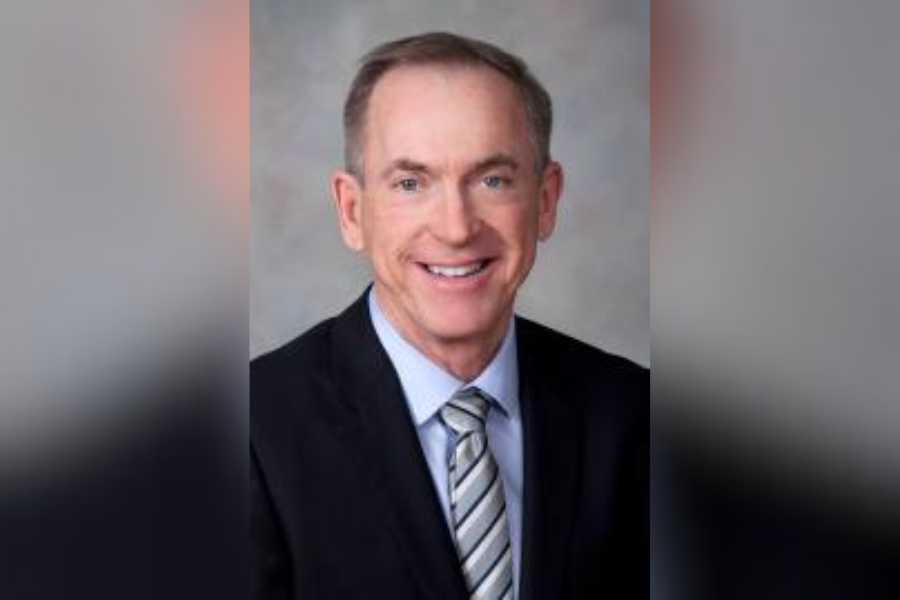

Living to 100 was once a rare occurrence but it’s becoming more common and requiring understanding and preparation from financial advisors focusing on retirement planning.
Despite CDC stats showing average life expectancy in the US was 77.5 years (based on 2022, the latest data available), data from the Pew Research Center estimates that the number of centenarians will more than quadruple over the next three decades to 422,000 by 2054, from 101,000 this year.
InvestmentNews asked Matthew Myre, who has been an advisor with Edward Jones for 45 years, and currently manages $575 million in client assets under care, to share his insights into the unique approach required when dealing with this elite cohort of Americans.
Myre is a former general partner and regional leader and service 12 years on the Edward Jones Investment Policy Advisory Committee.
“Clients of the 100+ cohort are looking for entirely different services from financial advisors than clients a generation ago,” he said. “One of the biggest challenges when advising these clients is navigating the new road to help them achieve financial health. Financial advisors must be prepared to deliver more holistic advice on overall financial well-being, rather than just financial advice.”
The US population is aging dramatically and the 65+ cohort is the fastest growing with retirees experiencing greater longevity than past generations and with more Americans living past 100, financial advisors can in some cases be advising multiple generations of a family at one time.
“At Edward Jones, some of our financial advisors are working with up to five generations within one client family. It’s important for financial advisors to understand the specific needs of their clients in each of these different chapters,” said Myre, adding that one of the needs of those in retirement is health care cost. “These costs are especially important for clients in the 100+ cohort who may need more extensive care. Financial advisors can recommend personal financing strategies that will take into account the potential cost of health care expenses in retirement and options to help pay for those costs.”
One of the most challenging conditions for aging clients is cognitive decline and, more so, diseases such as dementia and Alzheimer’s, which a recent Edward Jones survey found was the most feared condition of later life.
“On average, the cost of Alzheimer’s care is up to $350,000 per patient,” said Myre. “When advising
clients in the 100+ cohort who may be more susceptible to cognitive decline, it’s important for financial advisors to implement a holistic approach. We believe financial advisors can encourage good physical health and wellness, advising clients to challenge themselves mentally, which has been proven as a way to ward off some of the impacts of cognitive decline.”
Myre also says advisors must know how to spot the signs of dementia early on and to ensure that caregivers and long-term care are part of the conversation to advocate for family and friends.
“With the rising cost of care, it’s important for financial advisors to discuss topics such as health insurance options and care insurance plans for life,” he said. “For this reason, it is essential that financial advisors provide holistic advice, not just for everyday expenses but taking into account future healthcare costs.”
Longer term health care planning should be part of an advisor’s planning tools.
“For instance, supplemental health insurance is helpful in limiting out-of-pocket medical costs, which can be a heavy burden for aging clients,” said Myre. “As the cohort of 100+ clients continues to grow and the need for long term care becomes more common, it is important that financial advisors consider saving tactics that can cover the costs of health care, which tends to be the highest expense of life during retirement.”
For those approaching retirement, with the prospect of living a lot longer than they may have expected earlier in their savings journey, concern about running out of money during their later years is clear.
But Myre says that clients should speak to their advisors about employer sponsored retirement plans and to ensure that their investment strategies are aligned with their goals for a fulfilling retirement.
“Recent changes made to the Secure 2.0 Act have allowed for additional features in these plans to encourage use of these tools, because unfortunately, such plans have been historically underutilized by the workforce,” he said. “Employer-sponsored plans can certainly boost confidence among clients anticipating a longer retirement, providing benefits like tax credits that can greatly impact the quality of one’s retirement.”

Rajesh Markan earlier this year pleaded guilty to one count of criminal fraud related to his sale of fake investments to 10 clients totaling $2.9 million.

From building trust to steering through emotions and responding to client challenges, new advisors need human skills to shape the future of the advice industry.

"The outcome is correct, but it's disappointing that FINRA had ample opportunity to investigate the merits of clients' allegations in these claims, including the testimony in the three investor arbitrations with hearings," Jeff Erez, a plaintiff's attorney representing a large portion of the Stifel clients, said.

Chair also praised the passage of stablecoin legislation this week.

Maridea Wealth Management's deal in Chicago, Illinois is its first after securing a strategic investment in April.
Orion's Tom Wilson on delivering coordinated, high-touch service in a world where returns alone no longer set you apart.
Barely a decade old, registered index-linked annuities have quickly surged in popularity, thanks to their unique blend of protection and growth potential—an appealing option for investors looking to chart a steadier course through today's choppy market waters, says Myles Lambert, Brighthouse Financial.
